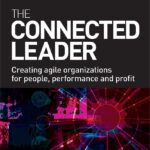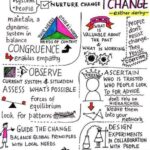 This is hybrid working.
This is hybrid working.
Everyone is talking about it, and everyone uses a different definition: hybrid working. There are various interests and various perspectives. For individuals and for the organisation. What’s yours? There are challenges for the three types of organisation: classic, hybrid and nomad). What is your story?
After this module you will have an insight into the pros and cons of hybrid working on an individual, team and organisational level, and you’ll have a good picture as to where you stand in the development towards an organisation in which people can and want to assume responsibility. You will have a story towards your organisation as to why and how you are going to take steps towards a new, hybrid way of working.
 Six basic activities that determine our work.
Six basic activities that determine our work.
Focus work, processing, informal discussion, collaboration, formal discussion and presentation. Logically, what do you do where and when? And how does that differ from the roles in your organisation? What are you going to do to facilitate the serendipitous meeting? Which new technologies are going to help you for the things you normally did physically? How does it work if some people are at the office and others are not? Rules or is it free for all?
After this module you will have the knowledge and skills to apply activity-based and time- and place-independent working in your organisation. This will allow you to help your people with the physical and virtual facilities that apply to their role, and to make agreements as to how you can deal with this as effectively and efficiently as possible within your organisation.
 The changing role and function of the office.
The changing role and function of the office.
What should you do with your office? Insight into the various functions of the office (and the human need to meet others). The six activities from the previous module: where can you best do what? And what does the virtual office have to offer?
After this module, you and your organisation can determine whether and/or how you are going to use your office. You are aware of the latest research into the role and significance of physical meetings for organisations and you have a method for balancing the various relevant issues. This includes matters such as brand experience, innovative strength, the wish to retain or discard certain cultural aspects, and the relationship with your customers.
Register and take part

 This is hybrid working.
This is hybrid working. Six basic activities that determine our work.
Six basic activities that determine our work. The changing role and function of the office.
The changing role and function of the office. Hybrid work and the impact on culture and behavior.
Hybrid work and the impact on culture and behavior. On connective leadership.
On connective leadership. Change is something you do together.
Change is something you do together.